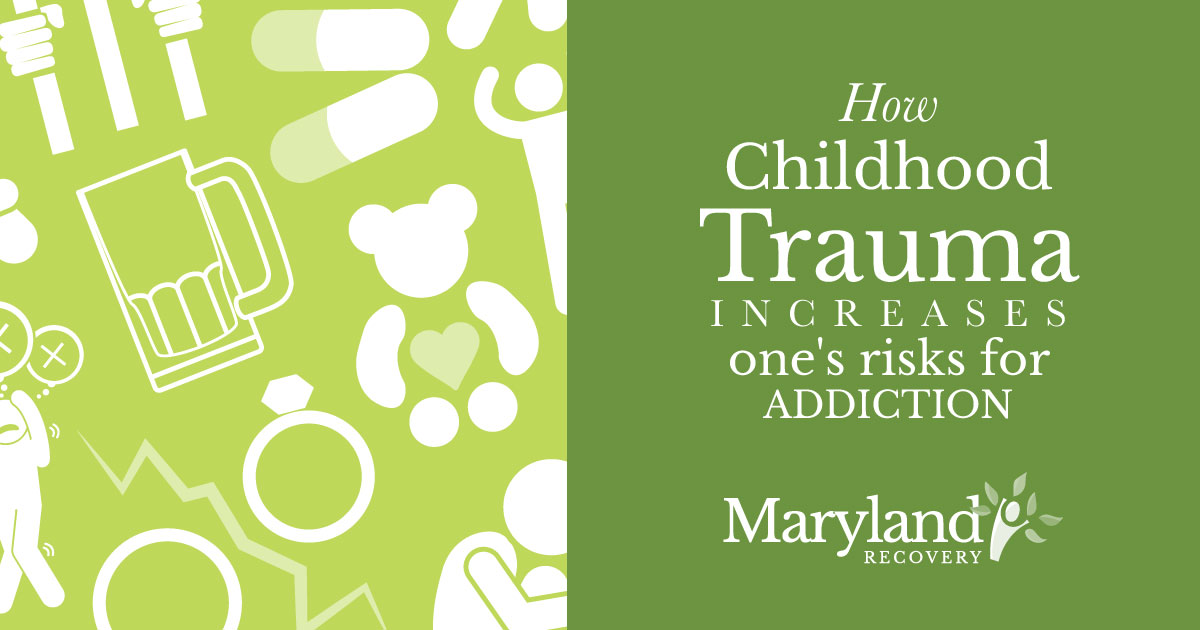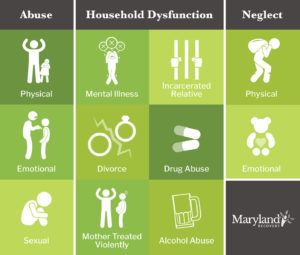 Substance abuse is a multifaceted disease with diverse risk factors. For example, we know that the children of addicts are more likely to struggle with substance abuse as they get older. Both genetics and our environment shape our risk for dependency, as well as how we approach and respond to addiction.
Substance abuse is a multifaceted disease with diverse risk factors. For example, we know that the children of addicts are more likely to struggle with substance abuse as they get older. Both genetics and our environment shape our risk for dependency, as well as how we approach and respond to addiction.
In particular, childhood trauma plays a significant role in an individual’s risk for addiction. And while genetics are certainly a key factor, the origins of addiction are usually found in a specific, emotional root cause. Recognizing how both of these factors play into addiction is essential to making a healthy recovery.
Defining Childhood Trauma
When most think of the term “trauma,” they often associate it with physical, mental or emotional abuse. While these are accurate examples, there are many ways that we as human beings can experience trauma. The Substance Abuse and Mental Health Services Administration defines trauma as any stress that causes a physical or emotional harm “from which you cannot remove yourself.” Trauma is different for every person, and is contingent on a person’s internal beliefs and sensitivity to stress. In other words, a therapist or friend can’t deem an experience traumatic – trauma is in the eye of the beholder.
Trauma can result from physical abuse or injury, but it can also be associated with any frightening or painful experience. A sudden life change, such as divorce or death of a loved one, is an example of childhood trauma. Traumatic experiences may also come in the form of bullying, being in a car accident, body image issues or growing up in a poverty-stricken environment. Research shows us that these traumatic life events can increase one’s risk of experiencing long-term mental health problems like addiction.
Research Connects Childhood Trauma and Addiction
 A recent study published in Alcoholism: Clinical & Experimental Research confirms what mental health professionals have long theorized: a childhood history of abuse or trauma is common among people who struggle with alcoholism and is likely a factor in the development of alcohol use disorders in adults. The study found that childhood abuse is also linked to increased risks for depression, suicide and anxiety disorders.
A recent study published in Alcoholism: Clinical & Experimental Research confirms what mental health professionals have long theorized: a childhood history of abuse or trauma is common among people who struggle with alcoholism and is likely a factor in the development of alcohol use disorders in adults. The study found that childhood abuse is also linked to increased risks for depression, suicide and anxiety disorders.
The study also revealed that approximately 8.4% of the general population has experienced physical abuse. Compare those results to the percentage of individuals undergoing alcohol abuse treatment: Nearly 24% of men and 33% of women in alcohol treatment report experiencing physical abuse.
Similarly, just 6% of the general population reports being victimized by sexual abuse. Over 12% of men and 49% of women in recovery, however, also report a history of sexual abuse. It’s important to note that childhood abuse and neglect is usually underreported, meaning the reality of these heartbreaking trends is even direr.
Additional Evidence Connecting Trauma and Addiction
This study is only the latest entry to a large and comprehensive body of evidence that suggests trauma and addiction are related. Another study of children who attended school near Ground Zero was more likely to abuse drugs and alcohol based on the number of trauma-related factors they experience (for example, fearing for their life or knowing someone who died). The study suggests a clear association: children with three or more trauma exposure factors were 19 times more likely to increase their use of alcohol and drugs.
Another recent study published in Neuropsychopharmacology found teens who were maltreated in childhood were more likely to develop a psychiatric or substance abuse disorder. Of the 19 maltreated children who participated in the study, five developed major depression and four developed a substance abuse disorder over the three-and-a-half-year observation period.
Treating Childhood Trauma and Addiction
Research emphasizes the need to take a dual diagnosis approach to treating co-occurring substance abuse disorders and mental illness. The effective intervention of substance abuse requires a multi-disciplinary approach, and addressing the root cause of addiction is essential in recovery. To live a healthy and productive life, adults struggling with substance abuse must recognize how childhood trauma plays an important role. At Maryland Recovery, we believe effective treatment lies in treating past trauma and the addiction simultaneously. The holistic approach to addiction recovery aims to heal the entire person: mind, body and soul.
Read More on the Dangers of Opioid Addiction in Babies:
Reviewed by Christopher Schwartfigure MS, LGPC, CAC-AD








